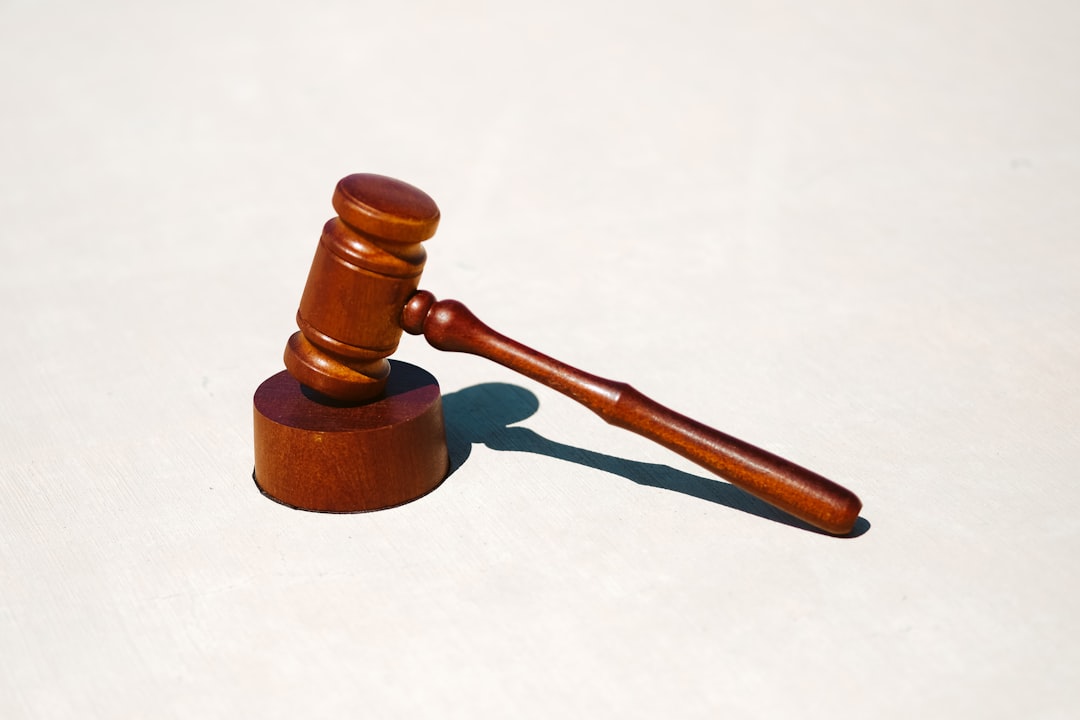The Newaygo Croton Dam, a Michigan landmark, balances energy generation and tourism. As environmental discussions intensify, so do concerns about hydroelectric scams targeting visitors. The Telephone Consumer Protection Act (TCPA) safeguards consumers from unwanted robocalls, including fraudulent offers related to the dam. Individuals in Michigan who experience such scams can seek legal help from specialized spam call lawyers or law firms to file complaints, pursue action, and protect their rights under TCPA. Prompt action is advised due to time limits on filing claims.
“Unraveling the mysteries of the Newaygo Croton Dam’s hydroelectric operations is crucial for visitors, as they may unknowingly fall victim to a growing scam. With an increase in fraudulent activities targeting dam enthusiasts, this article sheds light on the dangers of so-called ‘hydroelectric scams’. We explore how unscrupulous individuals prey on curious minds and delve into legal options, emphasizing the role of the TCPA (Telephone Consumer Protection Act) in Michigan. If you’ve received unwanted robocalls or spam related to the dam, discover your rights and potential remedies with a trusted Spam Call Law Firm in Michigan.”
Understanding the Newaygo Croton Dam and Its Hydroelectric Operations

The Newaygo Croton Dam, a significant structure in Michigan’s scenic landscape, is not just an engineering marvel but also a hub for hydroelectric power generation. This dam, strategically located along the Grand River, plays a vital role in the state’s energy grid by harnessing the river’s flow to create clean and renewable electricity. The process involves diverting water through turbines, which then spin and generate power. This efficient mechanism not only contributes to Michigan’s sustainable energy goals but also raises awareness about alternative energy sources.
Visitors to this iconic dam often marvel at its grandeur and the peaceful surroundings it offers. However, recent discussions have centered around a different aspect: the potential pitfalls of hydroelectric projects. With concerns about environmental impact and consumer protection, it’s essential to understand that these operations are subject to regulations like the Telephone Consumer Protection Act (TCPA). This law prohibits certain types of unsolicited calls, including those from robocalls, which has led many to wonder, can I sue for robocalls Michigan? The answer is yes, with the help of a spam call lawyer or law firm specializing in TCPA cases, individuals can take action against violators and seek compensation.
The Rise of Hydroelectric Scams and How They Target Visitors

In recent years, a new and insidious trend has emerged in the world of consumer protection—hydroelectric scams targeting visitors at popular attractions like the Newaygo Croton Dam. These cunning schemes often take the form of unwanted phone calls or texts, preying on people’s curiosity and enthusiasm for outdoor activities. Scammers pose as representatives from environmental organizations or government agencies, claiming that a small fee or action is required to support conservation efforts or access the site. They specifically target visitors because their temporary residence in Michigan makes them more susceptible to these deceptions.
Unsuspecting individuals may be led to believe they are making a donation or signing up for a worthy cause, only to find themselves entangled in a web of financial obligations. This is where legal recourse becomes essential. Those who have fallen victim to such scams, including those plagued by Robocalls in Michigan, can seek help from specialized law firms. Experts in the Telemarketing and Consumer Protection Act (TCPA) can guide affected individuals on how to file complaints and, if applicable, pursue legal action. With the assistance of a spam call lawyer in Michigan, victims can explore their rights and potential remedies, ensuring that such fraudulent activities are not only stopped but also serve as a warning for others.
Legal Options for Victims: Suing under TCPA in Michigan

If you’ve received unwanted robocalls promoting the Newaygo Croton Dam or any other fraudulent offers, you may have legal options. In Michigan, victims can take action against these spam calls through the Telephone Consumer Protection Act (TCPA). This federal law prohibits automated phone systems from contacting individuals without their prior consent for marketing purposes. If your privacy has been violated by these unwanted calls, a spam call law firm or spam call lawyers in Michigan can help you understand your rights.
Under the TCPA, you might be able to file a lawsuit against the culprits behind these scams. With the assistance of a qualified lawyer for TCPA in Michigan, you can seek compensation for each violation and even block future calls. If you’re considering taking legal action, it’s important to act promptly as there are strict time limits on filing claims related to robocalls.






